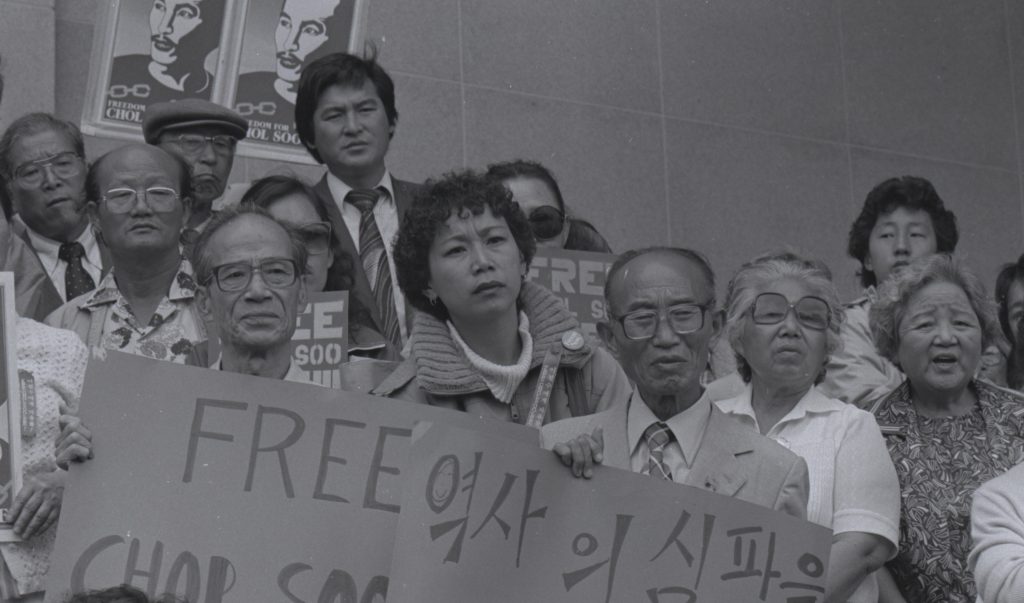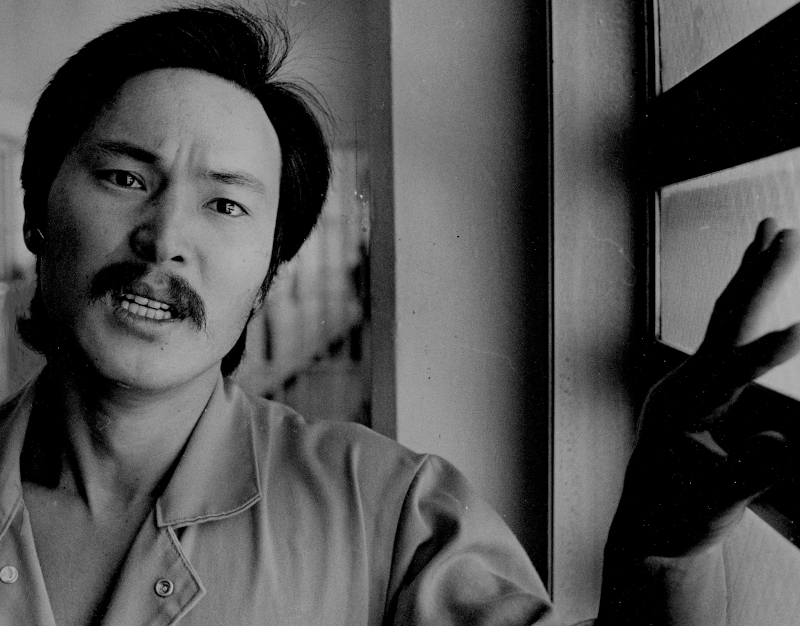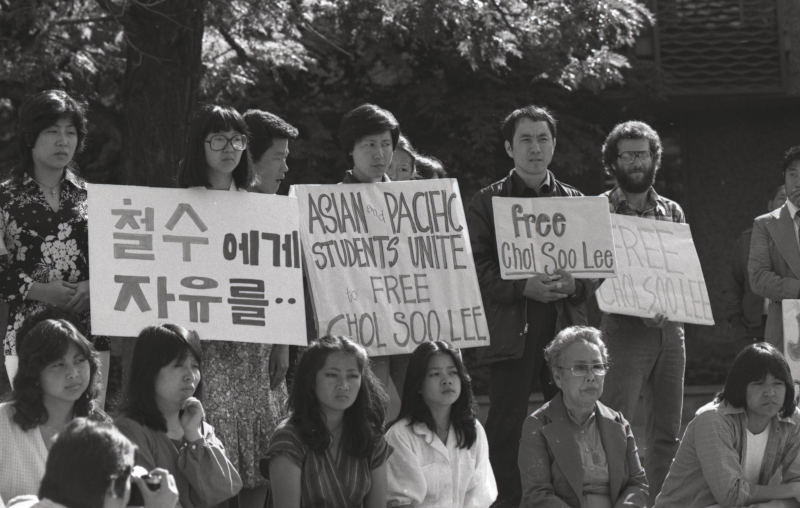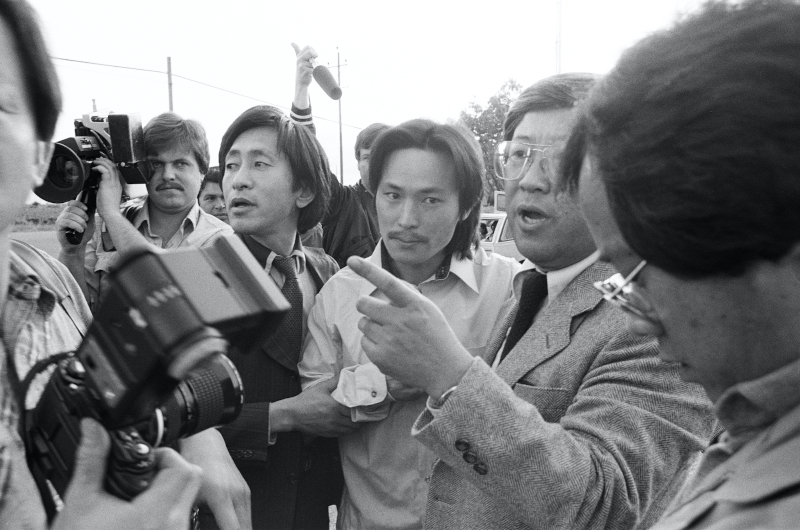Directors – Julia Ha, Eugene Yi – 2022 – US – Cert. 12a – 83m
****
Imprisoned for a murder he did not commit, Korean American Chol Soo Lee became a figurehead for a protest movement, something he felt unable to live up to – out in UK cinemas on Friday, August 19th
In San Francisco’s Chinatown in 1973, Korean loner Chol Soo Lee was arrested and subsequently convicted for a gang murder. While it’s true he had foolishly borrowed a gun off a work colleague a few days previously and accidentally discharged it into his apartment wall giving himself a police record, he was not the murderer. He was identified on the flimsiest of premises by unreliable witnesses, possibly not helped by white cops who wanted to convict a felon for the crime and consign the case to history.
On what was to be his last journey through the outside world before many years in prison, he heard the Tower of Power song “You’re still a young man” on a car radio crossing the Golden Gate Bridge. It resonated. As the years passed in prison, his mother abandoned him. He had fallen for a Japanese American girl he’d met Jean Ranko who subsequently told him in a letter that she had no romantic interest in him. However, she was convinced he was innocent and his case made her want to become a lawyer to defend people in similar circumstances.

Eventually, investigative journalist K W Lee (no relation), a rare Korean American in the news profession, started working on Chol Soo’s case and quickly recognised the situation as a clear travesty of justice. When the crime occurred, Chol Soo Lee was known as the only Korean in Chinatown who kept himself to himself. The crime had related to inter-gang rivalry, and Lee had had nothing to do with the gangs. K W could see the case as a rallying cry to the Korean American community; one of their own was on the receiving end of systemic American injustice.
A committee was formed to raise awareness and overturn the verdict, and a poem was turned into a protest song and released as a record, but in the interim the strains of prison life were getting to Chol Soo who killed a fellow inmate in self-defence. This unfilmable episode is shrewdly represented by a brief, simple and highly effective sequence of 2D animation in much the same manner as the similar, far more extensive scenes in Camp 14: Total Control Zone (Marc Weise, 2012).
His eventual retrial put Chol Soo on death row for several years. His words, spoken by former prison inmate Sebastian Yoon, describe the death row system as designed to make inmates despair and give in to suicide so as to save the authorities having to actually kill someone. Indeed, during his time on death row, Chol Soo heard of two inmates who’d killed themselves to end their misery.

(Photo by John O’Hara/San Francisco Chronicle via Getty Images)
When a further trial led to his release, he found himself something of a celebrity among the Korean American community for a period, After that he had to adapt to ordinary working life. He couldn’t cope, though, taking refuge in drugs and doing work for one of the gangs, culminating in a botched arson attempt which put him in considerable pain for one month and back in prison for 18. He died in 2014, largely forgotten.
Mainly through archive footage, the film covers his arrest and the subsequent Free Chol Soo Lee campaign for the first hour, with unsettling hints from Lee’s diaries of what is to come: he talks about how he always tried to be thankful and upbeat when talking with his campaigners, refusing to divulge some of his darker thoughts and experience from everyday prison life for fear that wasn’t what they wanted to hear. After he got out, he soon went completely off the rails, which wasn’t how a politically correct narrative was supposed to play out.

While innocent of the original crime, following his release he embraced anti-social and criminal behaviour, although it certainly can be argued that had he not been in prison – which, being innocent, he never should have been – his mental health wouldn’t have suffered the way it clearly did. This doesn’t fit the agenda of those who campaigned on his behalf, but it’s most definitely what happened. That the film is able to deal with such elements rather than pretend they didn’t happen and everything was hunky-dory is to its great credit.
In short, this is powerful filmmaking which could easily have tried to soft-soap its subject matter in an attempt to make it more palatable to audiences yet commendably avoids doing so. It represents yet another indictment of the US police system with its deeply ingrained white racism, yet at the same time asserts the idea that groups can take on the system, challenge it and, ultimately, improve it for the better. It also shows how wrongly convicted persons can experience considerable mental illness in isolation – and, in some cases, prove utterly unable to cope both in prison itself and afterwards. Profound, searing stuff, thoroughly deserving of a wide audience.
Free Chol Soo Lee is out in cinemas in the UK on Friday, August 19th.
Trailer:
